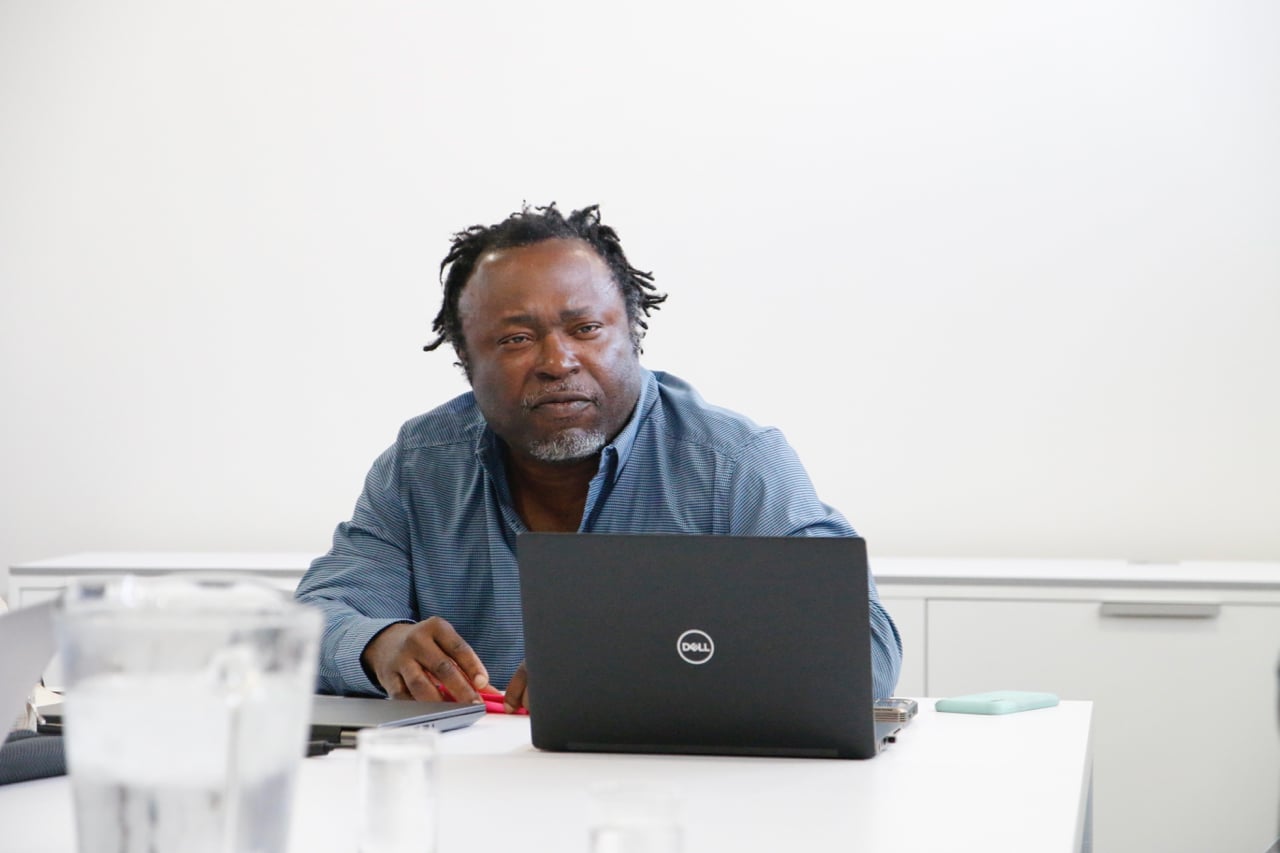“The foundation of modern African literature is rooted in the dynamics of Africa’s encounter with the world, and the attempts by her writers to enact a recovery from the ‘darker side’ of European enlightenment inside of which are colonialism and alienation. Colonial representations of Africa, and African humanity have tended to distort it. This sense of the inversion of African humanity and agency provided the inaugural stimulus for African literary modernity. It is thus literature rooted in counter discourse and counter-narrative; constantly self-aware; and sometimes combative in its ideological stances,” said STIAS Fellow Obi Nwakanma of the Department of English at the University of Central Florida.

Nwakanma’s project is an attempt to understand how African writers – specifically those in Nigeria and South Africa – contend with questions of representation within the tradition called African literature. He will explore how partnerships at the literary and cultural levels by key African writers both extend and complicate the idea of an African literature and cultural renaissance.
“The African world was initially constructed from the European imagination,” he said. He pointed to literary depictions of the African man as ‘the other’ as far back as Shakespeare’s Othello.
“If African literature is thus to be interpreted, and to have interpretive value, its philosophical underpinnings must be made clear in the relationship of the ‘images’ of Africa retailed, and located in the archives of European thought, and European ideas of Africa, from the work of European travel writers, to Hegel and Conrad in the 19th century, and to their more current emanations, in those ways that Africa continues to produce antinomy especially in the so-called ‘Western Mind’.”
“Such images of Africa persist,” he added. “Contemporary villainy is expressed in more subtle ways – like corruption, uncontrolled population growth, disease and pestilence – these images persist and are retold in contemporary media.”
“Africa continues to be represented as an absent space – a ‘subaltern’ subject, constantly placed, as Chinua Achebe said, ‘as the foil of Europe’.”
Nwakanma traced what he sees as the origins of modern ‘African imagination’. “I have theorised this as a triadic movement,” he said, “starting with the diaspora and its first staging post from across the Atlantic, in the Harlem Renaissance, to its European mooring, in Paris, through Negritude, and eventually, its location in Africa through the Mbari Movement in Ibadan from 1957 to 1967, as well as the emergence of a tradition of modern South African writers, particularly from the ‘Sophiatown’ tradition. But this description is only the frame. The connecting principle is the idea of an African Renaissance – an idea implicated in Nnamdi Azikiwe’s 1937 book, Renascent Africa, and its principles of ‘renewal’.
“Renaissance suggests new consciousness, attitudes and values that undergird a new era of human development. Africans have embraced that possibility, starting with the generation that emerged in the interwar years,” he continued. “I believe Azikiwe’s idea of a ‘renascent Africa’ assisted in the momentum of the anti-colonial, nationalist movements. By the 1960s, when African nations were getting free from European colonialism, Africa seemed indeed in ascendancy. The political collaborations between West Africa and South Africa, and the contacts between the writers and artists reflect a very subtle, yet significant, cultural and political development, whose contradictions, and complexity reveal powerful conjunctions, ruptures and disjunctions.”
“I don’t see renaissance as bounded, confined to a single moment. It’s a continuous historical process,” he added. “My aim is to theorise African literature as a product of linkages of continuous thought and practices that signify its unique project of self-recovery.”
“As black intellectuals moved into the epicentre they represented new ways of responding to Africa. African literature was in response to its nationalist movements and stories of the African world were shaped out of the struggles to be free.”
“I believe that literary renaissance must accompany political renaissance. No story is innocent. The encounter between Africa and the West has been fraught and unambiguously problematic. African literature has emerged to renegotiate this encounter.”
“The relationship between politics and literature is like the chicken and egg,” he added. “Culture is the driver, the basis from which we respond.”
“African cultural nationalism is about establishing convergence and a transcontinental imagination. African literature is a necessary counter-narrative to European representations of Africa. The literary community began to engage with the subject of blackness. It created Africanism as a way of returning Africa to itself.”
“Literature is all about representation. Those who allow others to represent them become victims of their own absence.”
“It’s about renegotiation of African imagination,” he said. He pointed to ongoing questions like what does Africa mean today; how do we retrieve Africa from colonialism; how does Africa represent itself as part of the history of the world from which it was rendered absent; who is Africa, what is Africa; whose Africa are we talking about; who invents Africa and why is Africa invented; and, how do African writers, artists and critics respond to the Western gaze?
In discussion he addressed the demise of literary studies. “Literature observes and records what changes the world. It’s difficult for me to accept that literature is closing shop. But perhaps we must not think of literature as one form. Maybe social media is our new way of showing ourselves and telling stories. Twenty years from now these may be the footprints we leave behind.”
He also touched on the issue of indigenous languages. “The language question continues to haunt African literature,” he said. “Unless we write in indigenous languages, these languages will disappear. Unless you teach them, preserve them and use them, the knowledge and the codes they preserve will disappear.”
He also acknowledged the complexity and challenge of Africa. “Africa is one thing and it’s everything,” he said. “Africa belongs to all who live inside it, who experience it, who describe and interpret it, and who wallow in its splendour.”
Michelle Galloway: Part-time media officer at STIAS
Photograph: Christoff Pauw
